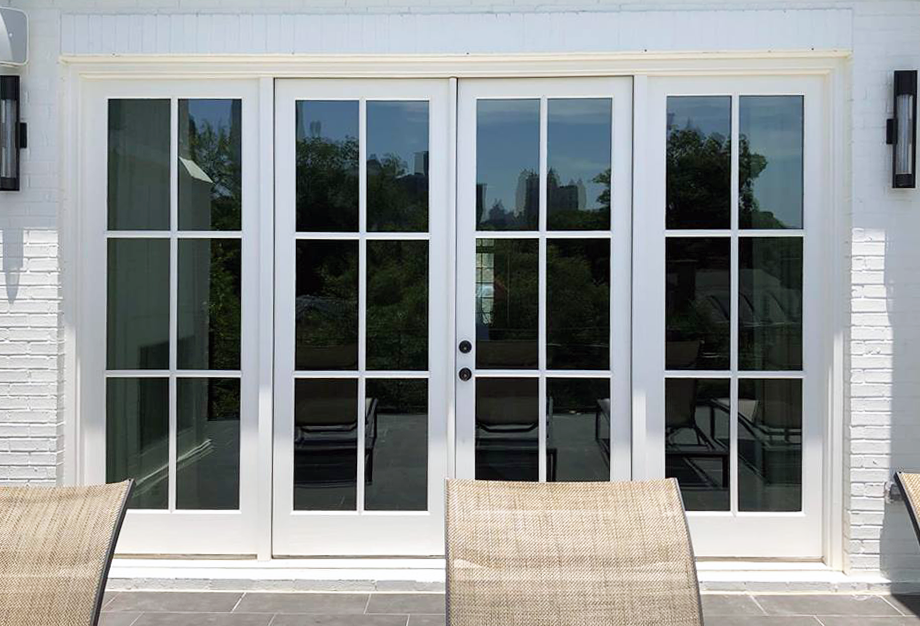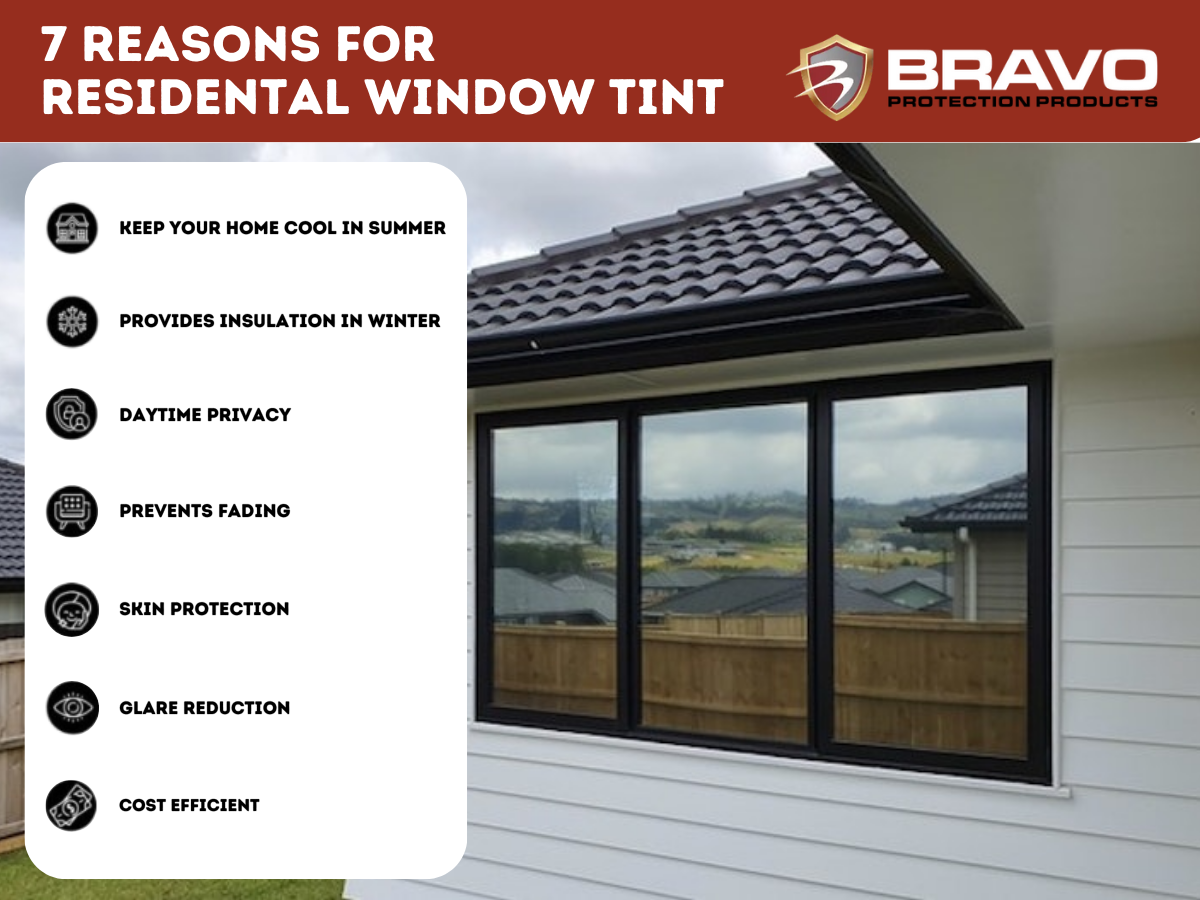Residential Window Tint: Enhance Convenience and Lower Glare Indoors
Residential Window Tint: Enhance Convenience and Lower Glare Indoors
Blog Article
How Residential Window Tinting Boosts Your Home's Power Performance
Residential window tinting presents a compelling remedy for house owners looking for to enhance power performance within their home. By using specialized films to home windows, it efficiently lowers warmth transfer, thereby stabilizing interior temperatures and decreasing the need for extreme home heating or cooling. This not just reduces energy consumption but likewise offers a much more comfortable environment by alleviating glow. Recognizing the nuances of just how tinting works and selecting the suitable kind for your home can be critical. Oddly, what variables should one think about before making this financial investment?
Comprehending Home Window Tinting
Understanding home window tinting is important for homeowners seeking to boost both convenience and power effectiveness in their living rooms. Residential Window Tint. Home window tinting involves the application of a slim movie to the interior or outside surface of glass windows. This movie can considerably regulate the amount of sunshine and heat that gets in a home, thus affecting indoor environment conditions
There are different types of home window tinting films available, each with unique residential properties. The effectiveness of home window tinting is commonly measured by its Visible Light Transmission (VLT) percent, which indicates just how much light can pass with the movie.
Benefits of Power Effectiveness
Home window tinting not only boosts appearances however additionally plays a considerable role in enhancing power effectiveness within residential areas. By reducing warm transfer via windows, colored movies produce an extra stable indoor environment, which can result in substantial decreases in energy intake for cooling and heating. This power efficiency converts into reduced energy bills, supplying home owners with substantial long-lasting financial savings.

Additionally, home window tinting enhances the comfort of living rooms. By decreasing glare and obstructing unsafe UV rays, colored windows develop a more pleasant setting, which can result in improved wellness for residents. The defense against UV rays additionally assists preserve furnishings and flooring from fading, adding to the longevity of house products.
Just How Tinting Works
Tinting movies run through a mix of advanced products and technologies made to control the quantity of solar power going into a home. Primarily made up of polyester, these movies typically include ceramic or metal particles that take in and mirror heat. This double capacity allows them to dramatically reduce the infiltration of ultraviolet (UV) rays and infrared radiation while allowing visible light to go through.
The performance of window tinting is determined by its solar warm gain coefficient (SHGC), which shows how much solar power is sent through the window. Reduced SHGC worths are preferable as they signify higher warmth being rejected. Furthermore, home window colors can feature a variety of shades, permitting homeowners to customize their aesthetic preferences while improving power performance.
Furthermore, these films serve as an obstacle, protecting against warmth loss throughout colder months by reflecting interior warmth back into the space. This thermal insulation result enhances the cooling advantages gained during warmer months, adding to a well these details balanced interior environment year-round. By taking care of solar power efficiently, residential window tinting not only improves comfort but likewise plays a vital function in minimizing power usage and reducing utility bills.
Choosing the Right Tint

There are various types of window films offered, consisting of colored, metalized, and ceramic. Ceramic movies give outstanding warm control without jeopardizing exposure and are extremely sturdy, making them a preferred selection.
Noticeable light transmission (VLT) is another essential variable, as it suggests the quantity of all-natural light that can pass with the tinted glass. Property owners must pick a tint with a VLT that enhances their lights choices while still giving appropriate glare reduction.
Furthermore, examining the solar warm gain coefficient (SHGC) can aid establish index just how well a color can obstruct warm from sunlight. A lower SHGC shows far better warmth control, inevitably improving energy efficiency.
Setup and Maintenance Tips
Correct setup and maintenance are essential elements in optimizing the benefits of residential home window tinting. To accomplish optimal outcomes, it is recommended to work with a qualified professional for setup. This guarantees that the color is applied appropriately, preventing air bubbles, creases, or misalignment that could jeopardize performance. Experts also utilize specialized techniques and devices, which can enhance the durability and efficiency of the tint.
Following installation, maintenance is necessary to lengthen the basics life of the home window film. It is recommended to wait at least 30 days before cleaning up the tinted windows to enable the sticky to treat completely.
Resolving these problems quickly can avoid further damages and preserve energy efficiency. By sticking to these setup and maintenance tips, home owners can guarantee their window tinting proceeds to supply considerable energy financial savings and comfort for years to come.
Conclusion
To conclude, residential home window tinting functions as an effective remedy for improving power effectiveness within homes. By decreasing warmth transfer and obstructing hazardous UV rays, home window films add to reduce energy usage and improved interior comfort. The option of suitable tinting products, along with correct setup and upkeep, even more optimizes these benefits. Inevitably, window tinting stands for a sustainable financial investment that not only reduces utility expenses but additionally promotes a comfortable living setting throughout the year.
Window tinting involves the application of a slim movie to the inside or exterior surface of glass windows. By minimizing warmth transfer through windows, colored movies develop a more stable indoor climate, which can lead to substantial decreases in energy usage for home heating and air conditioning.The performance of home window tinting is measured by its solar heat gain coefficient (SHGC), which indicates exactly how much solar energy is transferred via the home window. By taking care of solar power effectively, domestic window tinting not only improves convenience however additionally plays an essential duty in reducing energy consumption and decreasing utility bills.
By decreasing warm transfer and blocking damaging UV rays, window films contribute to lower energy consumption and boosted interior convenience.
Report this page